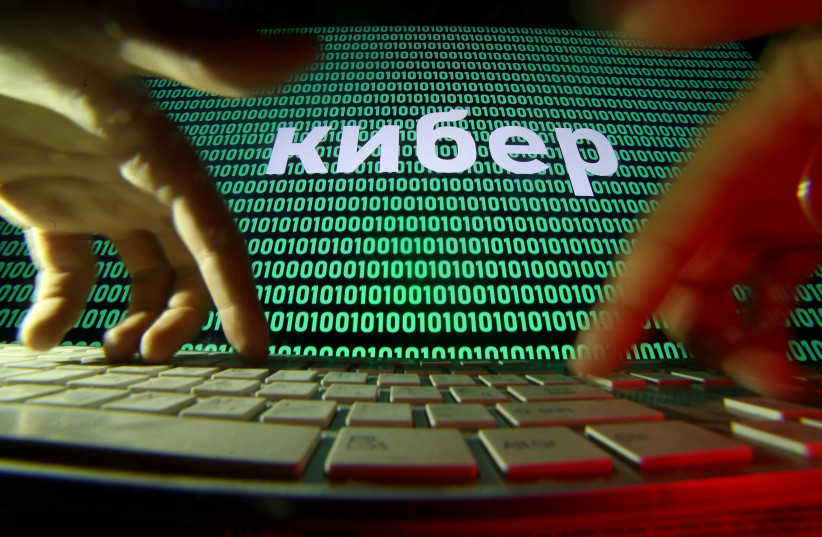Latvia, Estonia and Lithuania have expelled a total of 10 Russian diplomats, the foreign ministries of the three Baltic countries said on Friday.
Lithuania expelled four diplomats while Latvia and Estonia each expelled three.
The diplomats were expelled in a coordinated move "in connection with activities that are contrary to their diplomatic status and taking into account ongoing Russian aggression in Ukraine," Latvian Foreign Minister Edgars Rinkevics tweeted.
Estonia's foreign ministry said it had expelled diplomats because they "directly and actively undermined Estonia's security and spread propaganda justifying Russia's military action," its foreign ministry said in a statement.
Lithuania said its expulsions were made "in solidarity with Ukraine."
The Russian ministry of foreign affairs was not immediately available for comment when contacted by Reuters.
Bulgaria also expelled 10 Russian diplomats on Friday.
UK bans RT
Britain's media regulator on Friday revoked Russian-backed television channel RT's license to broadcast in the United Kingdom with immediate effect, citing its links to the Kremlin.
The regulator, Ofcom, said in a statement that RT received funding from the Russian state, which has launched an invasion of Ukraine and cracked down on independent journalism.
Ofcom said it was not satisfied that RT could be a responsible broadcaster. Its investigation took into account RT's relationship with the Russian government, it said.
"It has recognized that RT is funded by the Russian state, which has recently invaded a neighboring sovereign country," it said.
"We also note new laws in Russia which effectively criminalize any independent journalism that departs from the Russian state's own news narrative, particularly in relation to the invasion of Ukraine.

In light of that, it was impossible for RT to comply with the impartiality rules in Britain's broadcasting code, it said.
The Kremlin criticized the move.
"This is a continuation of the madness which is going on in America and Europe - it is anti-Russian madness," Kremlin spokesman Dmitry Peskov told reporters. "This is yet another step that crudely limits freedom of speech."
Russia has cut access to several foreign news organizations' websites, including the BBC, for spreading what it alleged was false information about the war. Bloomberg News temporarily suspended the work of its journalists inside Russia, citing the new media law.
RT, which is currently off air in Britain due to EU sanctions, called the decision unfair.
"Ofcom has shown the UK public, and the regulatory community internationally, that despite a well-constructed facade of independence, it is nothing more than a tool of government, bending to its media-suppressing will," Anna Belkina, RT's deputy editor in chief, told Reuters.
Britain, which has accused RT of being a tool of a Kremlin disinformation campaign in the past, had asked Ofcom to take action against RT if needed. The government imposed a travel ban and froze the assets of RT's editor in chief Margarita Simonyan this week.
Russian officials say RT is a way for Moscow to compete with the dominance of global media companies based in the United States and Britain that Moscow says offer a partial view of the world.
Separately, Ofcom currently has 29 investigations into RT's impartiality concerning coverage of the war. It said while those were ongoing, the volume and potentially serious nature of the concerns raised was deeply concerning.
Facebook owner Meta FB.O and Google GOOGL.O have barred Russian state media from getting money for ads on their platforms. RT's Facebook page was not available to view in Britain but its Twitter handle was still active.
Ofcom fined RT 200,000 pounds in 2019 for not complying with its rules in its coverage of Britain's response to the Salisbury nerve agent attack on a former Russian spy, and the Syrian conflict.
Russia's Google troubles
Russia's communications regulator Roskomnadzor on Friday said it had demanded that Alphabet Inc's GOOGL.O Google stop spreading what it labeled as threats against Russian citizens on its YouTube video-sharing platform.
Roskomnadzor said adverts on the platform were threatening the life and health of Russian citizens and that their dissemination was evidence of the US tech giant's anti-Russian position.
Google did not immediately respond to a request for comment.
Poland de-Russifies
Poland will take steps to sever economic ties with Moscow, the prime minister said on Friday, in a process of "de-Russification" in response to Russia's invasion of Ukraine.
Memories of decades of Soviet domination following World War Two run deep in the European Union's largest eastern member, and the war in Ukraine has added urgency to a process of minimizing dependence on Russia that was already underway.
"We will deal with the de-Russification of the Polish and European economy," Mateusz Morawiecki told a news conference. "We call for the suspension of activities on the Russian market."
Labeling the measures an "Anti-Putin Shield," terminology reminiscent of previous government packages to cushion the blow on businesses and households from COVID-19 and inflation, Morawiecki said that the first main aim was to stop food prices rising.
As well as being a major wheat exporter, Russia is also a world leader in fertilizer exports.
International food and feed prices could rise by up to 20% as a result of the conflict in Ukraine, the United Nations food agency said this month.
Poland will offer farmers a subsidy of 500 zlotys ($117) for each hectare of land used for agricultural purposes, to compensate them for the rising cost of fertilizers.
A staunch opponent of the Nord Stream 2 gas pipeline, Poland has long argued that Europe needs to reduce its dependence on Russian oil and gas, and Morawiecki said on Friday that the government would allocate 3 billion zlotys to recapitalize domestic pipeline builder Gaz-System.
"Gas blackmail, the use of raw materials as an element of not only psychological warfare, but simply warfare... is an action that we must counteract on many fronts," Morawiecki said.
Polish gas company PGNiG PGN.WA has on many occasions said it will not extend its current contract with Russia's Gazprom when it expires in 2022.
